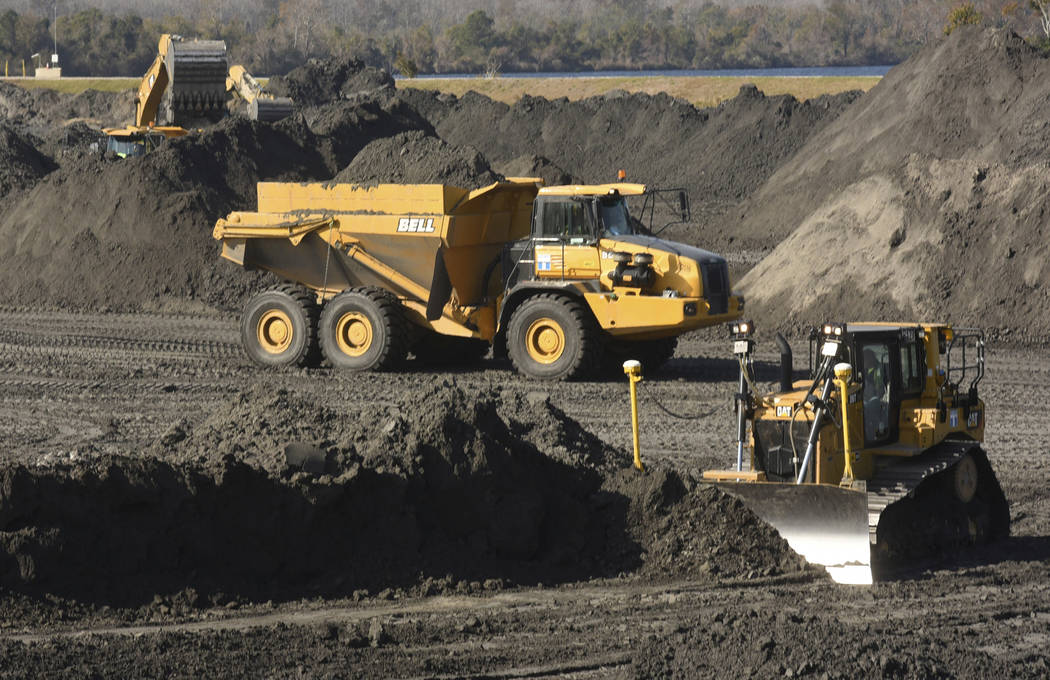North Carolina orders Duke Energy to remove coal ash
RALEIGH, N.C. — The country’s largest electric company was ordered Monday to excavate coal ash from all of its North Carolina power plant sites, slashing the risk of toxic chemicals leaking into water supplies but potentially adding billions of dollars to the costs consumers pay.
Duke Energy Corp. must remove the residue left after decades of burning coal to produce electricity, North Carolina’s environmental agency said. The company had proposed covering some storage pits with a waterproof cap, saying that would prevent rain from passing through and carrying chemicals through the unlined bottoms and would provide a quicker and cheaper option.
Coal ash contains toxic metals like mercury, lead and arsenic.
Monday’s decision affects six coal-burning plants still operating in North Carolina. Pits at eight other power plants around the state had previously been ordered excavated, with the ash to be stored away from waterways.
The move means North Carolina joins Virginia and South Carolina in ordering its major electric utilities to move their coal ash out of unlined storage.
“The science points us clearly to excavation as the only way to protect public health and the environment,” state Department of Environmental Quality Secretary Michael Regan said in a prepared statement.
A 2008 spill in Tennessee drew national attention to coal ash storage. Cleanup became a priority in North Carolina after a 2014 leak from a Duke Energy site left coal ash coating 70 miles (110 kilometers) of the Dan River on the state’s border with Virginia.
Duke Energy pleaded guilty in 2015 to federal environmental crimes after an investigation found the company allowed coal ash dumps at five power plants to leak toxic waste into water supplies. The company agreed to pay $102 million in fines and restitution.
Last year, Duke Energy agreed to pay a $156,000 penalty for similar state environmental violations at three other power plants after pollution entered groundwater and the adjoining Catawba and Broad rivers.
The company didn’t immediately respond to the agency’s announcement Monday or offer current cost projections of fully excavating its North Carolina sites.
Duke Energy projected in 2014 that it could cost $7 billion to $10 billion and take up to 30 years to excavate and move away from rivers and lakes all the ash collected at the 14 current and former coal-burning plants in the state.
State utilities regulators last year set a precedent in deciding that Duke Energy’s two North Carolina divisions could charge ratepayers the first $778 million chunk of a cleanup the company had projected to cost about $5 billion.
But the same North Carolina Utilities Commission assessed the company a $70 million mismanagement penalty, finding that Duke Energy’s “irresponsible management” of its ash pits” resulted in cost increases greater than those necessary to adequately maintain and operate its facilities.”
State Attorney General Josh Stein said last year he will try to stop Duke Energy from passing along its cleanup costs to 3.4 million North Carolina power customers, arguing that corporate mismanagement increased costs that shareholders should also be forced to bear.
Charlotte-based Duke Energy has 7.6 million electricity customers in the Carolinas, Florida, Kentucky, Indiana and Ohio.




























